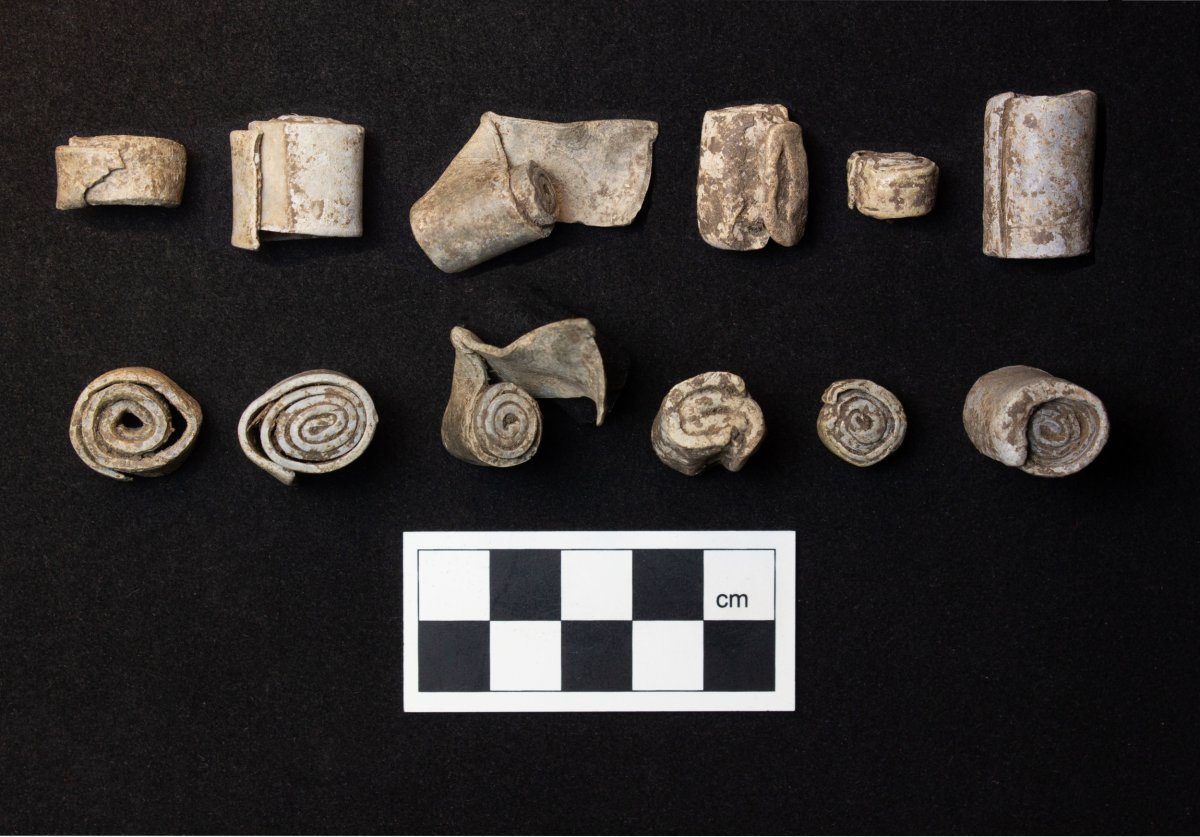Archaeologists have uncovered a remarkable ancient Roman villa complex in Britain with a "huge" number of artifacts, including a set of mysterious lead scrolls.
The complex was unearthed at the site of a housing development called Brookside Meadows in the village of Grove, Oxfordshire County—located in southeastern England—the Red River Archaeology Group (RRAG) said in a press release.
The group has been conducting excavations at the site since the second half of last year, when signs of a stone building emerged.
"It has since been carefully uncovered and investigated, with a portion of the building yet to be fully revealed," Louis Stafford, RRAG's project manager for the excavations at Brookside Meadows, told Newsweek.

The complex is of "impressive" size and scope, according to RRAG, and is spread out across an area of approximately 29,000 square feet, Stafford said.
The remains include a richly decorated villa building, a monumental hall-like "aisled building" with traces of internal colonnades, and a wealth of artifacts.
"The sheer size of the buildings that still survive and the richness of goods recovered suggest this was a dominant feature in the locality, if not the wider landscape," Stafford said in the press release.
Evidence of Roman activity at the site extends from the first or second centuries into the late fourth or early fifth century, although the landscape in which the complex lies was inhabited in even earlier times, during the Bronze Age. The Roman occupation of Britain lasted from A.D. 43 to A.D. 410.
"The owners of these villa complexes are assumed to be both local landowners adopting Roman ideas and Romans who have settled in the country," Stafford told Newsweek. "These complexes range from agricultural administration centers for an individual family to more grand complexes [including] baths and temples, which may have been utilized by a wider community.
"These types of complexes are the pinnacle of Roman society in Britain, showing a Romanization of the countryside with these centers of wealth managing large tracts of land," he continued. "These are not commonly found or excavated and often [consist of] just a single large villa building.
The finds at the site include large quantities of painted plaster, with some featuring floral motifs; mosaic tiles; a complex brickwork floor; tableware; hundreds of coins; rings and brooches; a horse-headed belt buckle; and miniature votive axes.
"The site in Oxfordshire, although only the foundations survive, has a huge amount of finds and building material such as painted plaster in a quantity to show that this was a very wealthy site," Stafford said.
Perhaps the most intriguing find from the site is a mysterious collection of tightly coiled lead scrolls that have yet to be opened. These artifacts resemble "curse tablets" previously found at other Roman archaeological sites.
"Sheets of lead and tightly wound lead scrolls have been known on ritual temple sites to contain writing with prayers or curses on individuals given to patron gods. These curse tablets or scrolls are known in Latin as defixiones," Stafford told Newsweek. "Several of the discovered scrolls have been sent to a specialist to be opened. However, to date none have writing that can be seen."
Some of the discoveries from the site, like the votive axes and lead scrolls, could suggest there was a ritual element to the complex, according to Stafford. For example, it may have hosted a small family temple or one used by the wider community.
Do you have a tip on a science story that Newsweek should be covering? Do you have a question about archaeology? Let us know via science@newsweek.com.
Uncommon Knowledge
Newsweek is committed to challenging conventional wisdom and finding connections in the search for common ground.
Newsweek is committed to challenging conventional wisdom and finding connections in the search for common ground.
About the writer
Aristos is a Newsweek science reporter with the London, U.K., bureau. He reports on science and health topics, including; animal, ... Read more
To read how Newsweek uses AI as a newsroom tool, Click here.








